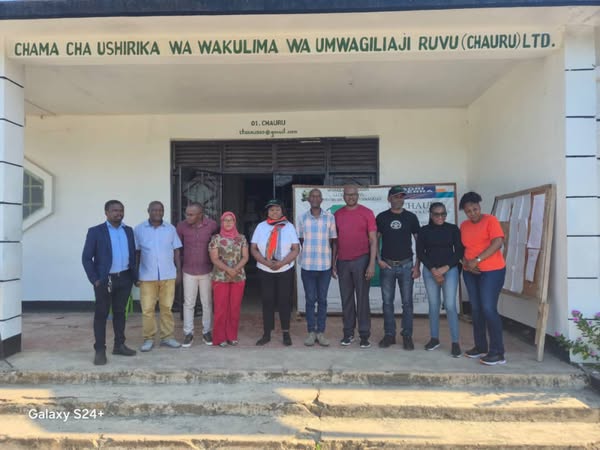Zambian Delegation Draws Lessons from Tanzania’s Successful Agri-Finance Model
A high-level Zambian delegation led by the Director of Policy and Planning in the Ministry of Agriculture, Ms. Emma Malawo, today visited Chahuru Cooperative Association in Morogoro, Tanzania, as part of a regional learning mission to strengthen Zambia’s agricultural finance systems.
The visit forms part of Zambia’s broader strategy to improve agricultural productivity and sustainability by adopting best practices from neighboring countries. The delegation is focusing on how Tanzania Agricultural Development Bank (TADB) has successfully supported smallholder farmers through integrated financing, market access, and cooperative governance.
Chahuru Cooperative, founded in 2002 with 360 farmers, now boasts 874 active members engaged in paddy cultivation. It currently manages 3,902 hectares, with 720 hectares under rice production through furrow irrigation.
The cooperative’s success is rooted in effective leadership, strategic financial backing from TADB, and a transparent governance system led by a five-member board and professional secretariat.
During the tour, Ms. Malawo commended the cooperative’s model, stating, “What we’ve seen today is a shining example of how structured financing and strong cooperative management can unlock the full potential of agriculture. We are taking home valuable lessons that can inform the way we support farmers and cooperatives in Zambia.”
Members of the Chahuru Cooperative benefit from structured land allocation,one hectare for rice farming and another for residential use, as well as access to subsidized farming equipment and group marketing mechanisms. This collective approach enables better price negotiations and reduces dependency on exploitative middlemen.
The learning mission will continue through the week with further engagements with Tanzanian agricultural institutions. The Ministry of Agriculture is optimistic that the insights gained will help shape inclusive and sustainable agri-finance models that can transform Zambia’s rural economy.



